For a long time, VOQIN’ has been dedicated to impacting the world positively, with people at the center of our efforts. As time passes, we continue to find that this remains the most rewarding part of our job. However, our efforts go beyond cultivating a great work culture and creating joyous moments for our clients. There is much more to it than that.
Our First Efforts to Promote Healthier Habits: IMEXrun and B2Run
It all started in 2015 when we addressed our concern for healthier workplaces through sports, a universal language that brings people of all origins and cultures together and serves as a means for positive mindset change.
With IMEX Run, held twice a year in partnership with IMEX, VOQIN’ aimed to leverage the incredible power of sport to not only connect industry professionals in an innovative way but also to encourage them to lead a healthy and active lifestyle. One year later, in Portugal, we started organizing B2Run, an international sports event focused on creating happier workplaces by promoting physical activity. The 5km race, like IMEX Run, greatly contributed to corporate well-being while also enhancing work relationships, networking among companies, and fostering solidarity.
It was with great joy that we watched how, over 8 years, more and more people adhered to these events, turning corporate gatherings into opportunities for fun, outdoor experiences, and overall well-being.
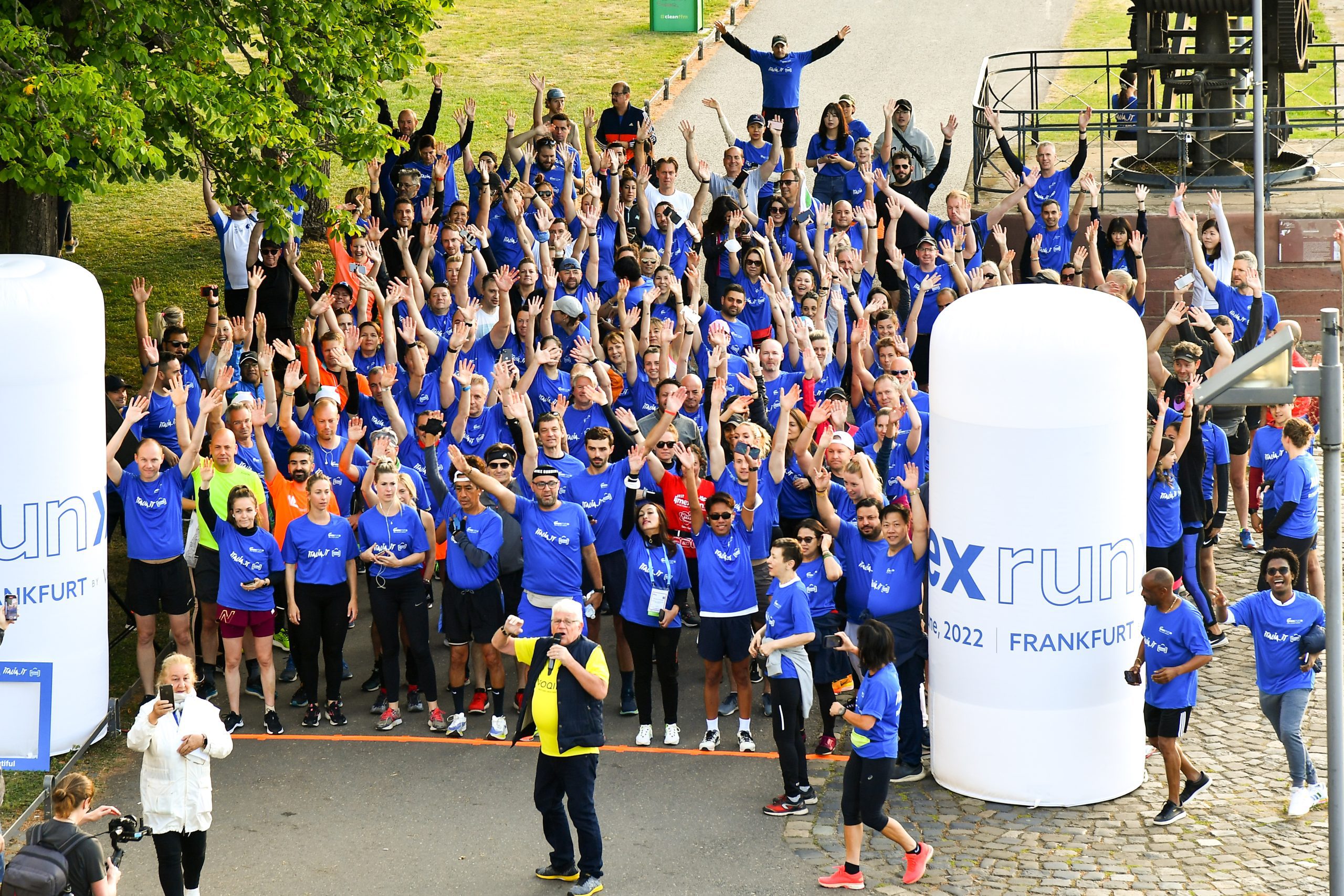


The Shift from Body to Mind: Mental Health
During that period, VOQIN’ grew not just in numbers but also in our purpose: creating emotional journeys that light up people’s hearts. In 2019, confident that the best memories are engraved by the play of emotions, we adopted the tagline “Emotions Creators.” Since then, we have delved deep into understanding what makes us human and all that it entails.
Then came COVID-19, and as always, the world kept spinning and changing. The world had already been witnessing a decline in mental health, which took a significant plunge during the pandemic, with more people suffering from depression, anxiety, and various other related illnesses—an increase estimated at 25%, according to the World Health Organization (WHO).
As we came to a full stop, it got us all talking. It got us to really pay attention to what goes on in our minds, it got us to learn and seek help and it got us to the “its ok not to be ok” era, an era in which we are finally allowed to say what we are feeling and accept our full range of emotions, not just the so-called positive ones.
And it just clicked! What if we used all the knowledge we possess to make a difference in this area? We had already supported people’s happiness by encouraging physical activity; it was time to bring our A-game to the promotion of better mental health.
Happiness Starts in the Mind: The Importance of Emotional Agility
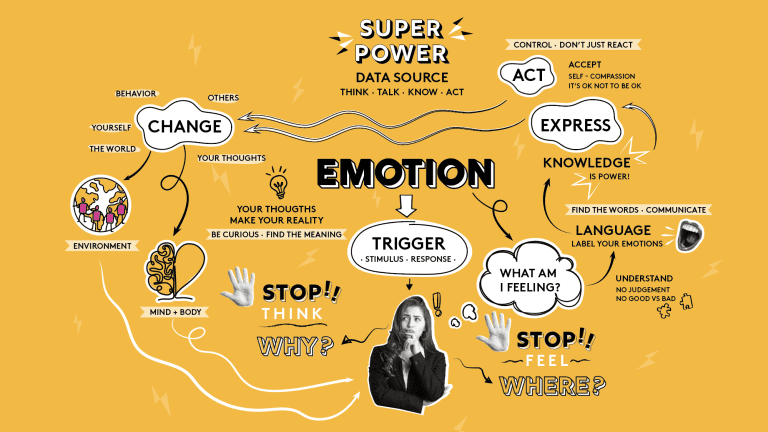
Achieving happiness involves navigating our emotions and maintaining good mental health. Guided by PhD Susan David and many others who dedicate their careers to this subject, we’ve learned that emotional awareness—the ability to identify and label our emotions—helps us understand and regulate our feelings, reducing the risk of mental health problems such as depression and anxiety.
We work daily with emotions. Our Emotional Thinking Method developed with the neuroscientist …… makes us reflect on what people feel at a certain moment and what triggers it. It attunes us to the fact that humans are highly permeable to the impact of emotions and that literacy is key if we are to navigate them effectively. Just like with any disease, we can work on promoting better habits and prevention and we can all take action.
That’s just what we’ve done. Aiming to bring literacy to all the attendees, our booth at IMEX was a big callout to think about emotions, learn the language and how to better process and use them in your favor.
Curious? Here’s a guide to interpret the design on our booth’s wall:
- Emotions trigger a (usually unconscious) response. We may react on impulse and not even realize what the root of it was.
- We are all invited to stop and ask, “what am I feeling”? Emotions are usually messages; we just need to know how to interpret them.
- Stop! Feel: Connect to your body. Notice physical signs like a racing heart or tense shoulders.
- Stop! Think: Ask yourself why. What could be causing your feelings? Are you feeling threatened or isolated?
- Just like you can only describe the most beautiful landscape if you have the words for it, to talk, or even think, about your emotional states, you must first learn the language. Without words there is no cognition, and you are powerless. That is what the Emotions Wheel is there to represent.
- Express/Act: Once you understand what your body and mind are telling you, and you have the right words, express yourself appropriately and take action.
- Change: By understanding and managing your emotions, you can change yourself, impact others, and the world.
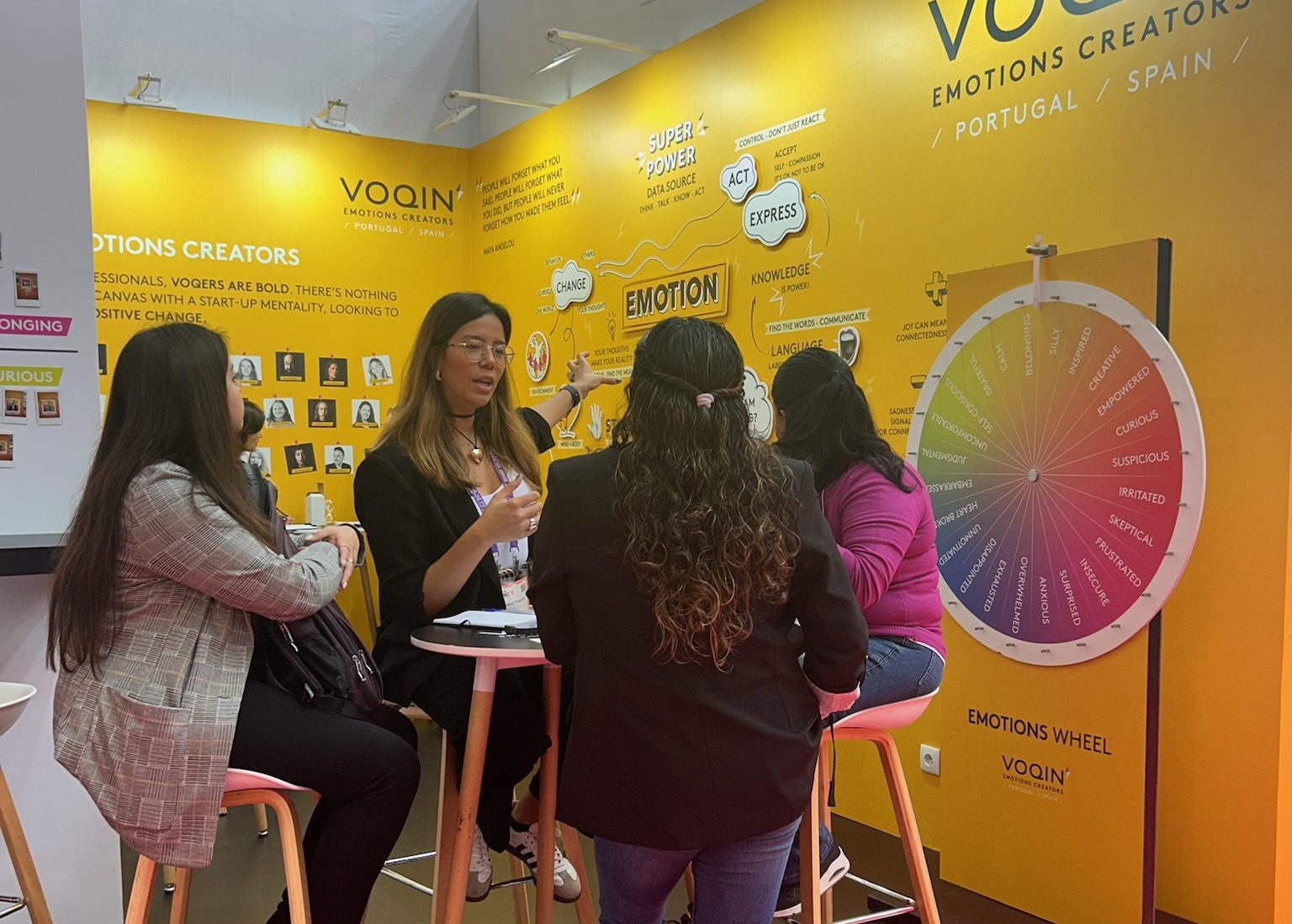
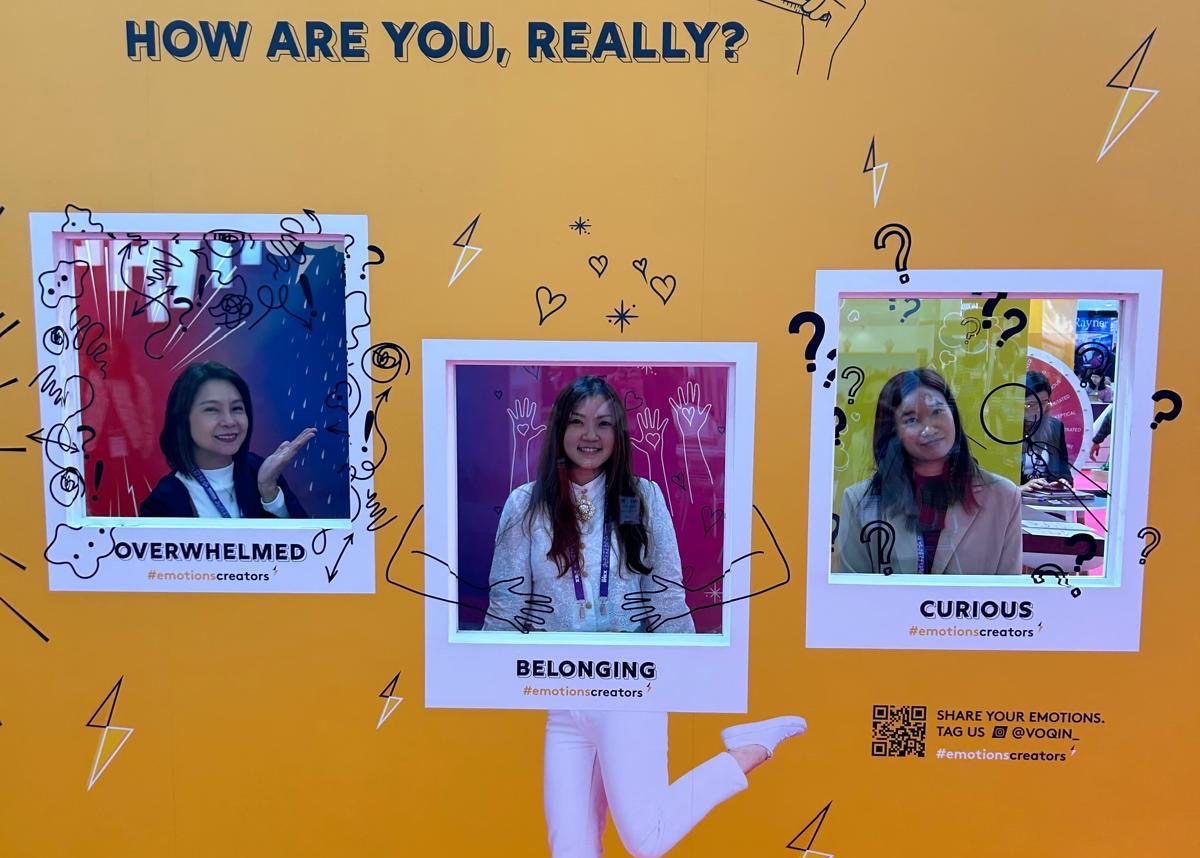
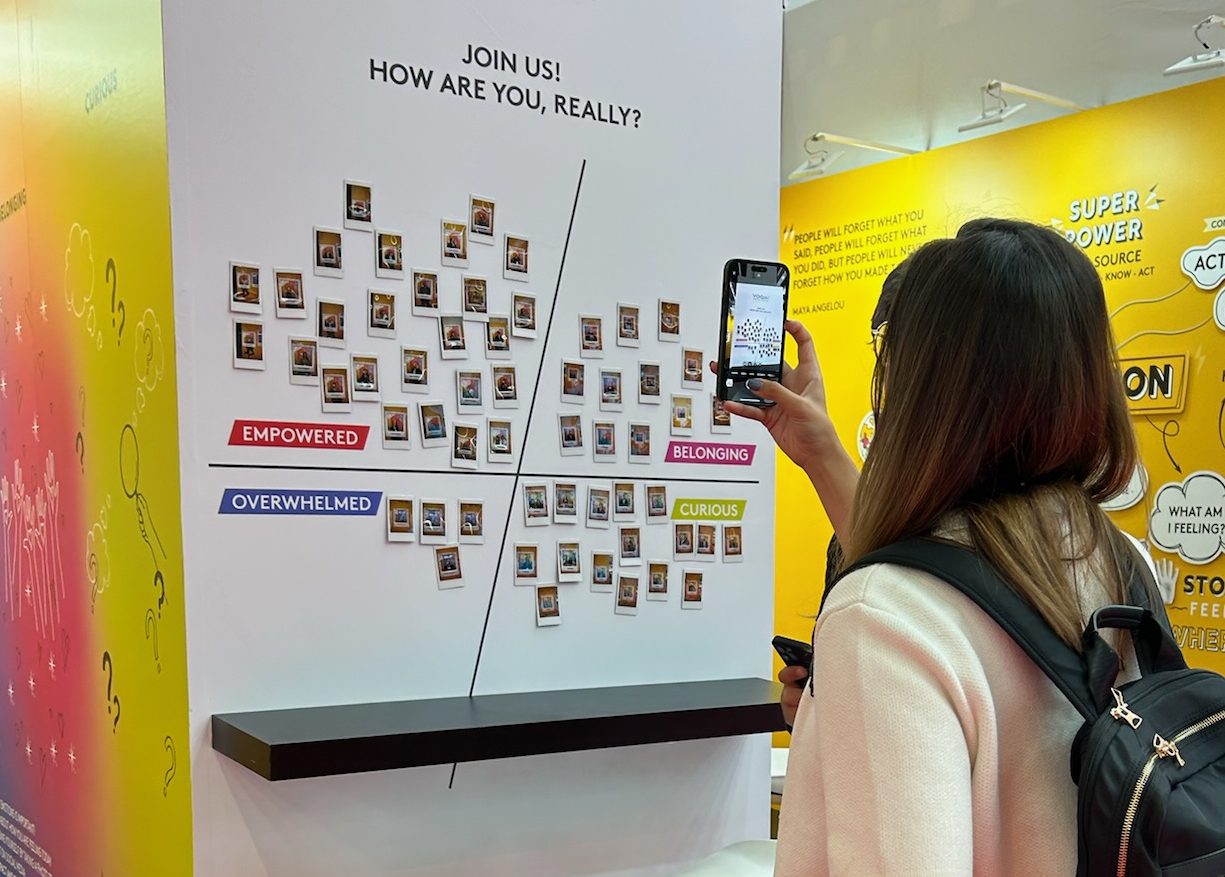
Dealing with your emotions means meeting yourself with compassion, accepting all that you are feeling without judgment, and recognizing that it is okay not to be okay. It takes courage to face your feelings, no matter how uncomfortable. Emotions are indeed a data source—a superpower you just need to tap into.
By fostering emotional awareness and prioritizing mental health, we aim to help individuals achieve happiness and thrive.
Think. Talk. Know. Act.
“Between stimulus and response there is a space. In that space is our power to choose our response. In our response lies our growth and our freedom.”
Viktor E. Frankl



